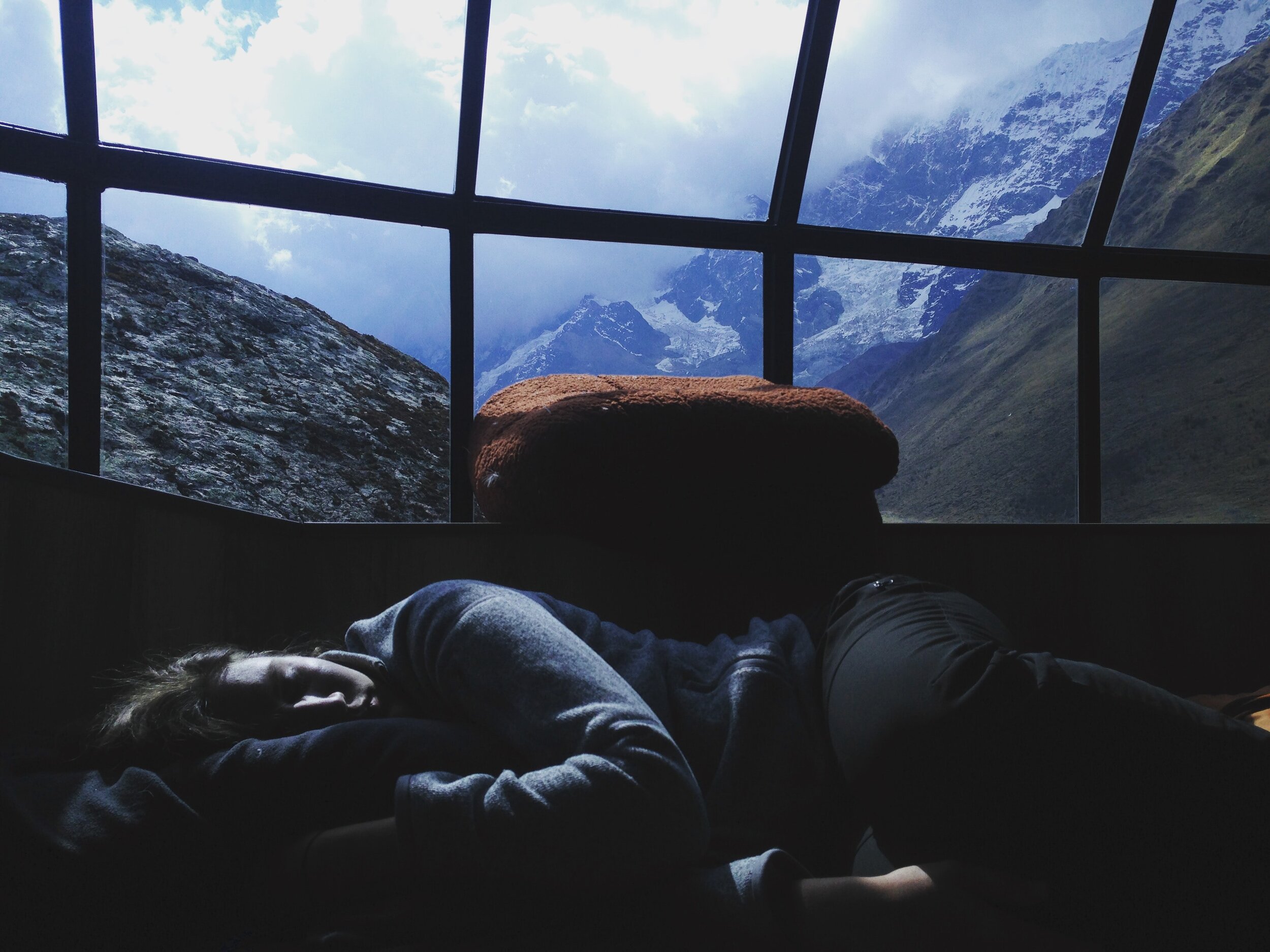Sleep When You’re ALIVE
As we don our, “I’m super important” hats we love to wear, we schedule ourselves into a frenzy and adopt the old “I’ll sleep when I’m dead” adage. Let’s stop that. Sleep is important for both healing your body and disease prevention. So much good happens inside your body when you give it the rest it needs.
Sleep pressure and wake drive are what drive the natural rhythms of sleep. Unfortunately, we do a lot to jimmy-jack with these natural rhythms.
We keep bright lights on at night
We look at screens up until bedtime
We go to bed and wake up at random hours
We do all sorts of non-sleep related activities where we sleep
We sleep in a temperature that’s too warm
We don’t get enough movement in during the day to feel tired at bedtime
We don’t eat enough carbohydrates during the day
We sleep in a room that isn’t dark enough
We drink alcohol and caffeine
We live stressed
The great news? These habits are all fixable! Let’s chat about how.
The artificial lights at night can be turned down, dimmed, or you can purchase special bulbs that emit a softer light for the evening.
Turning off your screens, laptops, phones, at least an hour (preferably 2) before bedtime, and/or using blue-light blocked amber or yellow tinted glasses will help reduce exposure.
Keep a consistent lights out and wake time to give your body a more consistent rhythm of the sleep-wake cycle.
Make your bedroom a haven for sleep and sex only. Do not bring in work, exercise, or other energetic activities into your sacred sleep space.
The ideal sleeping temperature is around 65 degrees. A chilliPAD or other related items can keep your sleeping temperature cooler all night.
Getting enough movement and exercise in daily will assist in helping your body feel the sleep pressure it needs to fall asleep easily.
Carbs increase the availability of tryptophan, which is a precursor to serotonin and melatonin, to enter the pineal gland. Low carb dieters may experience better sleep by introducing more carbs. It’s best to sleep neither too hungry nor too full.
Black out shades or an eye mask are excellent in assisting sleep in a room that has too much natural light. We sleep best in a pitch black room.
Either wean your coffee intake down, or make sure you don’t have coffee past noon to ensure caffeine isn’t disrupting your sleep. Decrease or eliminate your alcohol intake as it is a sleep disruptor as well.
Stress disrupts sleep. If you do not have a routine for eliminating stress, take the time to look into the page on stress management, and begin to develop habits to get your stress levels decreasing.
Other tips, give yourself an extra half hour for your bedtime routine so you’re not rushing to fall right asleep. This means that if you are aiming for eight hours of actual sleep, you should give yourself 8 1/2 or nine hours of time in bed. Also, try stretching before bed. This was transformative for me. It releases a lot of the stress that we hold in our bodies, and is a physical reminder from my body to my brain that it’s time to drift off.


